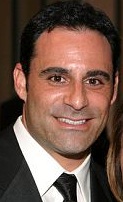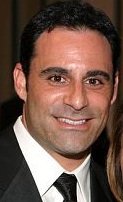Createasphere sat down with agent Craig Mizrahi for an in-depth discussion about talent representation in the world of production and post. An excerpt of the conversation follows.

Createasphere: You represent an important swath of production creatives. What advice would you give young cinematographers, editors, producers, production designers and costume designers coming into the market?
Craig Mizrahi: That’s a great question that’s tough to answer because each person should have a unique marketing strategy when they start out. First, it’s crucial to distinguish what your best marketing tools are, then focus on exposing yourself to the right people by utilizing those specific tools. For instance, if you have a lot of great looking shorts but no established relationships, focus more on meeting people via screenings, seminars, workshops, etc. If you’re a DP, get to the ASC clubhouse or ASC events. On the other hand, if you’ve already made some connections with producers and directors but you need some good work under your belt to show them, focus on landing a job or two through the local film school job boards.
Regarding your demo reel, it’s important to remember less is more! Don’t include every single thing that you’ve worked on, include only the best. Remember, once a producer or director sees anything that isn’t quite their taste, they will likely move on. Just give them a bit of your best work and make them want to see more!
Don’t be afraid to self promote. So many of my clients tell me they don’t reach out to those they want to work with because they don’t want to bother them. Well trust me, they want to be bothered. They want to hear that you are dying to someday get an opportunity to work with them. Pick a director or producer you dream of working with, write a lovely note to them, and I’ll make sure they get it. Sounds like a pretty far-fetched plan of attack, but I can say first hand its yielded some great results when sent at the perfect moment.
Finally, be patient and be very thick skinned. Just like actors and writers, there’s only room for one of you on every project, so be prepared for rejection, and lots of it. There are literally hundreds of people trying to land the same job, so while there’s going to be plenty of perseverance and hard work involved, at first it’ll be more about good timing and a lot of luck!
Createasphere: What is the role of the agent in the career of a production creative?
Craig Mizrahi: The role of an agent on the production side is wide ranging and complex. Actors usually have a manager, agent, lawyer and publicist, but the production agent covers all of these positions. We look for work; we market our clients; we handle all their business related (and sometimes personal) situations as they arise; we negotiate their deals and work directly with the production attorneys on their contracts; and we manage our clients while they are working and try to make sure they have their next job lined up before they finish the current one. We seek out information from many different sources and fight to communicate it thoroughly and effectively. And after all, we are salespeople, and there’s nothing more rewarding than closing that deal.
Frankly, this role hasn’t changed much over the years – the daily responsibility to stay informed, the deal making, the communication with our clients, etc. has all remained the same. What has changed drastically is the impact of the technological explosion. Now, we constantly update the way we market our clients so we can be more advanced and more time effective than our competition. The technological changes also mean that our clients are constantly changing the way they work and that means we also must be savvy about the new equipment so we can sell our clients better. With the advent of instant communication, we are on call 24 hours a day in case we need to get a client’s website to someone across the globe. The marketplace is now global. In the old days, there were six studios with six studio heads that you could call to find out almost every film being made. Now the studios make up just a small portion of all films made. Also, television is now extremely cinematic, narrative and wide ranging, which means that more and more feature film actors, writers and directors are moving into television. And there are more independent production companies, television networks and new media companies than ever before. We must always be searching for those great opportunities, and always – ALWAYS – be accessible.
Createasphere: What are the most important skills that production team members need to have to succeed?
Craig Mizrahi: In my opinion, as a department head, there are four main components: artist, technician, manager, politician. They are all crucial, not one superseding the other. Those who understand this dynamic usually succeed. This is a collaborative medium we work in, and having respect for others and being low maintenance are two things that we all have control over, no matter how artistically or technically talented we are.
Createasphere: Does the next generation of filmmakers need an agent to succeed in the future world of content creation? If so, what’s the first step they should take?
Craig Mizrahi: Of course, there are countless success stories that happened without an agent by the person’s side. Having an agent is not the key to success and any agent that looks you in the eye and says they can single handedly make you a success is lying. Jobs come from a myriad of sources. The client-agent relationship is a special partnership, a collaboration between forces that hopefully balance each other out perfectly. An agent should bring their marketing strategies, professional relationships and lots of good information to the table, and the client brings their talent, prior relationships and some great references. Together they try to set forth a plan of both short and long term, and take all steps necessary to get on that path.
If it’s time for you to have an agent, an agent will approach you. Trust me, we can smell talent and we know where to find it! However, if you truly believe you need an agent and no one has found you yet, ask close friends who they like – although this will also lead to varying degrees of opinion. We are all available through IATSE, IMDB and other sources. When you do sit down with an agency, make sure you’re prepared and ask the right questions:
- How do you work internally?
- How do you collect your project information?
- Do you only represent production talent, or are you a full service agency with talent and literary departments?
- Will I be communicating with one agent or with a team?
- How many clients does the agent-agency represent that would be in direct competition with you? Remember that an agency can rep 40, 50 even 60 clients that do exactly what you do, but only five may be in your wheel house and up for the same jobs as you!
Once you have chosen an agent, allow them to do their job and give it a few months to see how it’s working. Know that they are professionals and have your best interests in mind. And never be afraid to speak up, tell them anything that isn’t comfortable, and give them a pat on the back when they make you happy. Be open. If there are simple keys to a successful agent-client relationship, it’s communication and trust.
Createasphere: How did you get into the business? What advice do you have for others who want to become agents for production talent?
Craig Mizrahi: I always wanted to be in the film/TV business, to work around creative people and get to know how to make what we see on screen. Truth is, I didn’t know the specific career I wanted until I got to L.A. and a friend recommended that I become an assistant to an agent so I could get to know who’s who in town. I started out in the production area, got my training there, and over time I became enamored with the clients and it just stuck. I’ve always had a thing for the underdog, too, and production talent sometimes seem to come second to the actor, writer and director, and remain outside of the spotlight. Some say it’s not the production talent that sells tickets, but that’s not what I believe. I believe they are as much and sometimes even more crucial to the success of a project. That’s the challenge that keeps me so excited to fight for my clients. And 12 years in, I’m loving every minute of my job!
My advice for someone wanting to be a production agent? Here are the prerequisites: You must love details, be a calming force, always be gracious (even when it may be undeserved), be a great trouble shooter, be an expert multi-tasker, never be easily surprised, and most of all: DO NOT BRING YOUR WORK HOME WITH YOU! I cannot stress this enough. No matter how close you feel to a client, no matter how passionate you are about their work, it is a business. Never take anything too personally and if you always remain confident that you are doing the best job you are capable of doing, then you will never feel disappointed or regretful. Finally, have a good time with it! There are tons of creative and wonderfully unique personalities at work here. Enjoy the excitement that comes with that!

Filmtools
Filmmakers go-to destination for pre-production, production & post production equipment!
Shop Now












